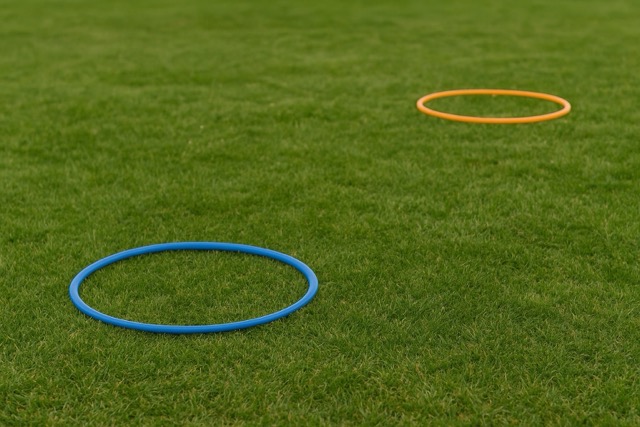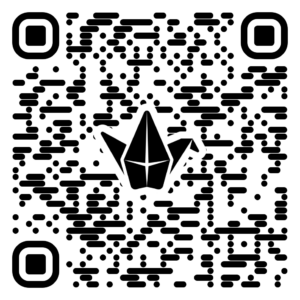Air Cannon Engineering Challenges
Part 1: Target Practice
- Apply your data to hit specific targets
- Use angle/pressure findings for accurate aiming
- Make systematic adjustments after misses
- Practice engineering problem-solving

Part 2: Air Cannon Challenge
- Optimize for maximum launch distance
- Apply all variables to achieve peak performance
🎯 Air Cannon Challenge: Point System
| 🎉 Challenge | 🏆 Points | 📘 Details |
|---|---|---|
| 🎯 Bullseye! (Blue Hoop) | 10 pts | Land your projectile inside the closest hoop (accuracy test). |
| 🟠 Long Shot (Orange Hoop) | 15 pts | Hit the far hoop—20 ft away (distance + aim). |
| 🎈 Hang Time Hero | 10 pts | Longest time in the air (use slow motion to record and measure). |
| 🔺 Perfect Angle | 5 pts | Use data to correctly predict the best launch angle before firing. |
| 🧠 Creative Projectile | 5 pts | Design and launch a non-standard projectile (safe, of course!). |
| 📊 Best Data Tracker | 5 pts | Neat, complete, and organized experiment data sheet. |
| 🎓 Physics Pro | 5 pts | Correctly calculate velocity using video + timing grid. |
| 🛠️ Engineer’s Pick | 5 pts | Bonus for innovative stand or launcher modifications (teacher’s choice). |
| 😄 Team Spirit | 5 pts | Positive energy, great teamwork, and safe handling. |
🏁 Bonus Round:
🎯 Double Trouble: Land two projectiles in two hoops during the same round – +10 bonus pts
🔄 Back-to-Back Bullseyes: Consecutive accurate hits – +5 bonus pts
Part 3: Final Showcase
- Present experiment findings to the group
- Demonstrate successful launches
- Reflect on workshop journey
- Celebrate your STEM accomplishments
Connecting Your Air Cannon Skills to Cool Careers!
You’ve spent the last few weeks building, experimenting, and analyzing with your air cannons – and in the process, you’ve been thinking and working just like people in amazing STEM careers! The skills you’ve used here are valuable in so many different fields. Let’s look at some of them:
Physics: You’ve been exploring how force and air pressure launch a projectile, how gravity pulls it down, and how different factors affect its motion. That’s applied physics!
- What do Physicists do? Physicists study the fundamental laws of the universe, from the smallest particles to the largest galaxies. Applied physicists use these laws to solve practical problems and develop new technologies.
- How Your Air Cannon Work Connects: Understanding how your air cannon launches a ball or rocket is the same basic physics used to understand everything from how a baseball flies through the air to how rockets are launched into space!
- Possible Careers: Physicist, Research Scientist, Astrophysicist, Medical Physicist, Ballistics Expert.
Engineering: You designed and built your air cannon barrel, wired the controller, tested different barrel lengths, and worked to optimize for distance or accuracy. That’s hands-on engineering!
- What do Engineers do? Engineers use science and math to design, build, and improve things that solve problems or meet needs. There are many types of engineers!
- Mechanical Engineers: They design and build machines, from simple tools to complex engines and robots. Your air cannon is a mechanical system!
- Aerospace Engineers: They design and build aircraft and spacecraft. Understanding projectile motion and forces is critical for them!
- Electrical Engineers: They design and work with electrical systems, like the controller you wired.
- Civil Engineers: They design and build infrastructure like bridges and buildings, considering forces and structures.
- How Your Air Cannon Work Connects: You followed steps like engineers do to build something that works. You also thought about how to make it perform better (optimization) and potentially designed modifications (like different projectiles).
- Possible Careers: Mechanical Engineer, Aerospace Engineer, Electrical Engineer, Design Engineer, Manufacturing Engineer, Civil Engineer.
Mathematics & Data Analysis: You measured distances, counted frames in videos, used equations to calculate velocity, recorded data in tables, and created graphs to see patterns. You used math and data skills every step of the way!
- What do Mathematicians & Data Analysts do? Mathematicians use numbers and logic to solve problems. Data analysts collect, organize, and interpret data to find insights and make decisions.
- How Your Air Cannon Work Connects: Measuring and recording data is the foundation of any experiment. Using graphs helped you visualize your results, and calculations helped you understand speed. These are all key data skills!
- Possible Careers: Data Analyst, Statistician, Research Analyst, Actuary, Mathematician, Financial Analyst.
Computer Science & Electronics: Wiring your controller introduced you to basic electrical circuits and how they can be used to control a device (like opening the solenoid valve).
- What do Computer Scientists & Electrical Engineers do? Computer scientists write the code that makes technology work, while electrical engineers design the hardware and systems.
- How Your Air Cannon Work Connects: Your controller is a simple electronic circuit that performs a specific task. This is a basic example of how electronics are used to control mechanical systems.
- Possible Careers: Electrical Engineer, Computer Hardware Engineer, Robotics Engineer, Software Developer (who might write code to control physical systems).
Beyond Specific Roles – Transferable Skills:
No matter which of these fields you might be interested in, the Air Cannon Workshop helped you build skills that are valuable in any career:
- Problem Solving: Figuring out why a launch didn’t go as expected and how to fix it.
- Critical Thinking: Analyzing your data and drawing conclusions based on evidence.
- Teamwork: Working together with your peers to build, experiment, and present.
- Communication: Explaining your ideas, sharing your data, and presenting your findings.
- Attention to Detail: Carefully measuring, recording data, and following building instructions.
- Experimentation & Iteration: Trying things out, seeing what happens, and making improvements.
You’ve gained hands-on experience with fundamental STEM concepts and developed valuable skills. Whether you’re interested in building rockets, designing new technologies, analyzing important information, or understanding the world around you, the experience you’ve gained with your air cannon is a fantastic first step! Keep exploring and see where your interest in STEM takes you!

